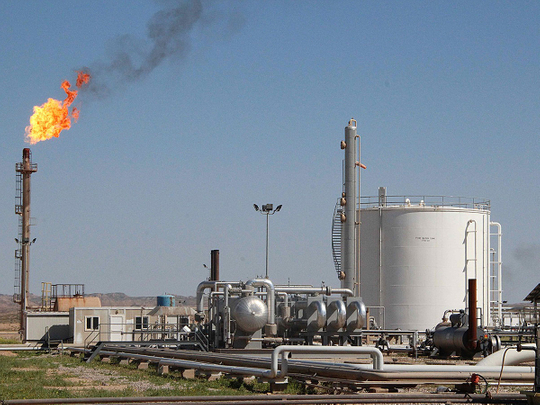
Abu Dhabi: Sharjah-based Dana Gas on Monday reported a 150 per cent increase in net profit in the first quarter of 2019 to $35 million (Dh128 million) due to an increase in production in the Kurdistan Region of Iraq (KRI) as well as lower financing costs.
The company said in a statement that higher production in KRI added $14 million (Dh51.42 million) to the balance sheet and offset the impact of lower production in Egypt and lower realised prices. In addition, a saving of $10 million of sukuk profit payments was achieved during the quarter following the successful sukuk restructuring and buy-back programme.
Revenue, on the other hand remained flat at $119 million (Dh436 million) in the first quarter of 2019 as compared to $120 million (Dh440 million) in the first quarter of 2018.
“We have started the year as we left off in 2018 with a strong operational focus and good financial results. Our revenues and cash-flow are robust and we more than doubled our net profit to $35 million this quarter,” said Dr Patrick Allman-Ward, CEO of Dana Gas.
“Operationally, we have signed a 20-year gas sales agreement with the KRI which enables us to go-ahead with our expansion plans to increase our production from the current 400 to 650 MMscf/d [million standard cubic feet per day] by 2021.”
Production in the first quarter averaged 68,700 barrels of oil equivalent per day (boepd), a 6 per cent increase as compared with 65,000 boepd in during the first quarter of 2018. The first-quarter production increase was led by the KRI, which leapt 24 per cent to 32,750 boepd as a result of the de-bottlenecking project.
With regard to collections, in the KRI, the company billed $40 million and the full amount has been paid, where as in Egypt the company billed $30 million and collected $21 million.
Dana Gas is also looking to list in alternate exchanges likely in London Stock Exchange as the company’s stock is undervalued on the Abu Dhabi bourse, Allman-Ward said during a conference call with the media.
On the outlook for oil prices, he said the decision by the US government to end sanction waivers for eight countries will result in a tightening of oil markets. He, however, added that there is still plenty of spare capacity.
“US shale phenomenon continues to deliver, so there is likely significant increase in production from US shale and of course there is significant spare capacity from [the] Opec+ group, who have reined back production by 1.2 million barrels per day since their agreement last year and the market is fairly balanced at the moment.”












